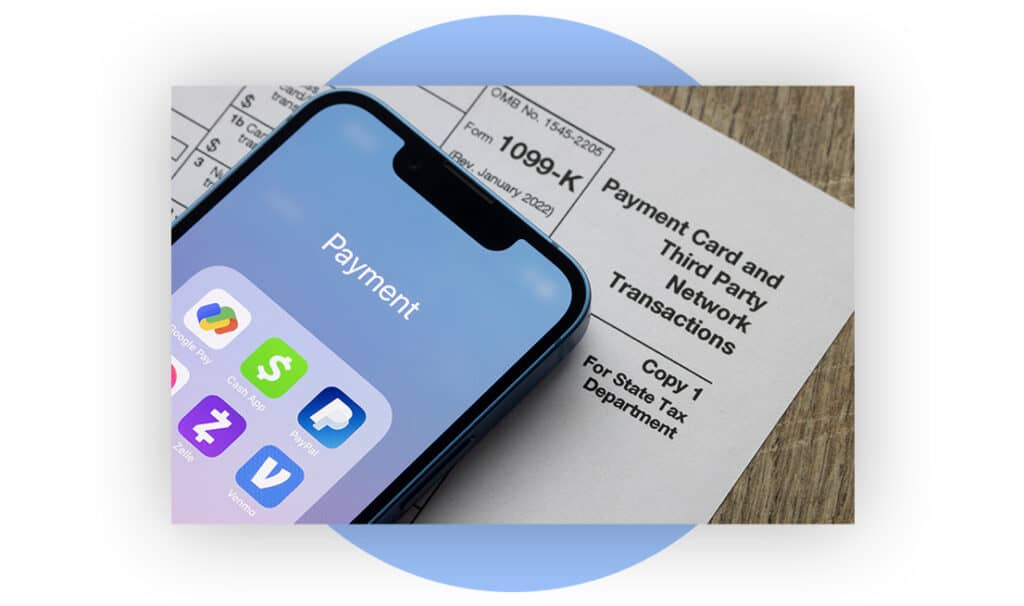Like death, as the old saying goes, tax is one of life’s unavoidables. This is true for freelancers and small business owners as much as it is for those who work for an employer. For employees, the IRS already knows how much you’ve made because your employer tells them, and so that part of their taxes might feel a little redundant. As for freelancers and small businesses, until recently it’s been up to them to self-report earnings.
Thanks to the IRS and the cooperation of P2P payment apps, taxes for many small businesses will be different this year. A small change hidden in the American Rescue Plan Act of 2021 has required apps like PayPal, Venmo, Zelle, and CashApp to report your freelance and contractor earnings to the IRS.
In contrast to peer-to-peer apps, Finli never shares your financial information with third parties — including the IRS. This of course doesn’t give you a free pass to underreport income on your taxes. (Sadly, like immortality drugs, no such free pass exists.)
But we believe that small business owners and freelancers work best when they’re in control of their own financial decisions.
This article takes a look at some of the consequences of the new tax laws affecting independent contractors and those working outside of a traditional employer relationship.
We’ll also cover some of the important privacy features that make Finli the most secure and private digital payment system of choice for freelancers and small businesses.
Peer-to-Peer Payments and Taxes
Starting in 2022, if you receive more than $600 from customers on a peer-to-peer payment app like PayPal or Venmo, they will automatically report it to the IRS as taxable earnings.
But how will they be able to tell your business earnings from a family member reimbursing you for dinner? Most peer-to-peer apps will add an extra form to designate the type of payment and whether it’s taxable.
And what will happen when you make more than $600 on one of these apps? The app will send that info to the IRS and issue you a 1099-K form.
In order to do this, PayPal will soon ask for your social security or tax ID number directly. “You may notice that in the coming months we will ask you for your tax information, like a social security number or tax ID, if you haven’t provided it to us already,” they write on a blog.
So, when you’re doing your taxes this year, keep in mind that the IRS already knows how much your small business has taken in with PayPal and Venmo.
PayPal suggests, somewhat ominously, that you consider the amount shown on the 1099-K they provide when completing your tax return. “The IRS will be able to cross-reference both our report and yours.” Such a statement has chilling implications not only for taxes but also for privacy.
In addition to taxes, privacy and security have been serious issues for peer-to-peer payment apps. Citing misdirected payments and other problems, one security expert has gone so far as to deem PayPal’s child company Venmo a “privacy disaster.”
Finli, Taxes, and Privacy
Finli believes freelancers and small businesses should be in charge of their own financial decisions. That’s why Finli does not share your financial records with other agencies for taxes or any other purpose.
We believe that your financial data security is crucially important. In fact, Finli is recognized as an industry leader in privacy—an area of concern for peer-to-peer payment apps like Venmo and Paypal.
Finli uses the most advanced encryption protocols available for financial purposes. Leveraging the Plaid platform, Finli uses Advanced Encryption Standard (AES 256), Transport Layer Security (TLS), and multifactor authentication (MFA) to ensure total financial security. Unlike peer-to-peer apps, Finli keeps your data and transaction history private and secure. No one but you has access to your financial data.
A More Secure Digital Payments System
Finli empowers freelancers and small business owners to take control of their financial destiny through a more secure digital payments platform. At a time when big tech companies are eating up more and more of our private data, Finli takes privacy and security as top priorities.
Finli encourages users to consult trained tax professionals and report earned income whenever it’s legally required by the IRS. But we’ll never divulge your financial info, no matter who’s asking. That’s simply your business.




